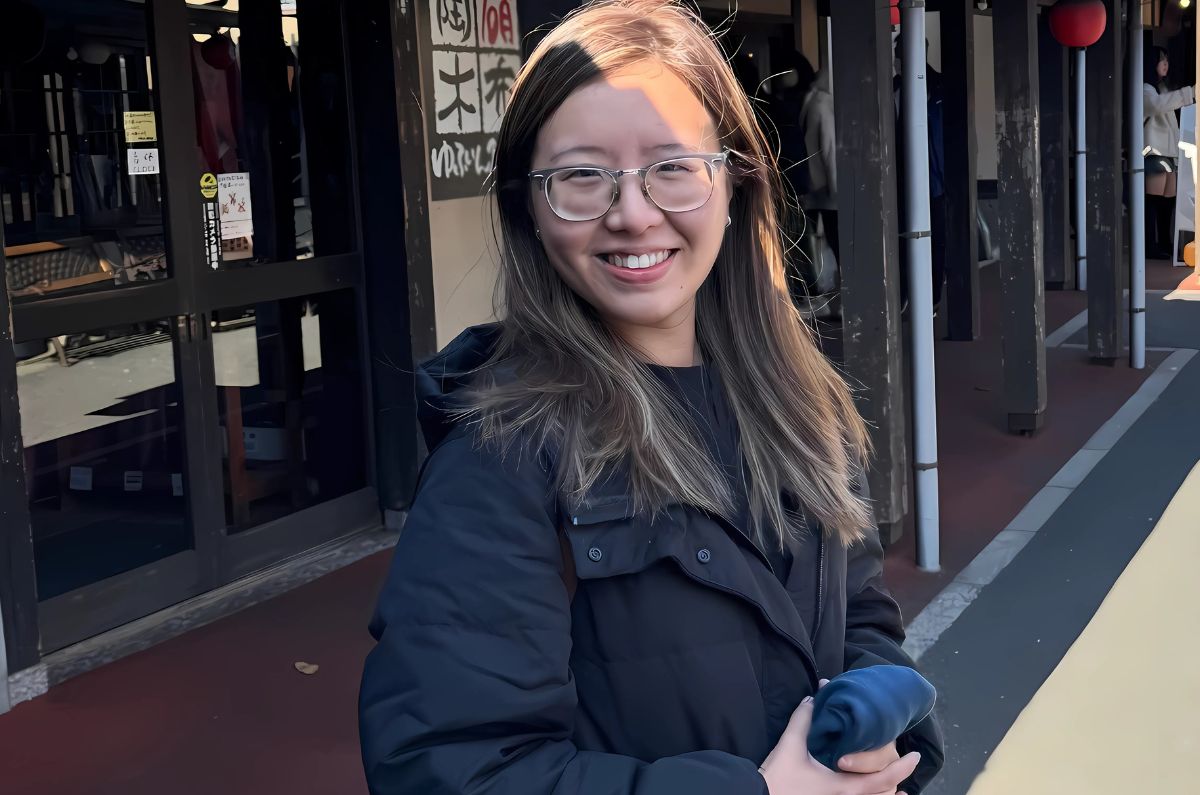Meet Kitty: Accredited Dietitian, volunteer, and sushi lover!
In celebration of National Volunteer Week, 19-25 May 2025.
National Volunteer Week provides us with the perfect opportunity to shine a spotlight on Kitty, an Accredited Practising Dietitian who’s been volunteering with Musculoskeletal Health Australia (MHA) for more than three years. Many of you will be familiar with Kitty’s recipes from our newsletter. It’s a place where she combines her knowledge and passion for nutrition and health for the benefit of our readers.
Kitty first came across MHA while searching for resources for a patient living with musculoskeletal disease. “I was searching for something practical and reliable,” she says. “When I found the MHA website, I realised it contained so much useful information—not just for my patient, but for so many others too.” Inspired, she decided to get involved by creating unique recipes that support musculoskeletal health for MHA’s website and e-newsletter, The Rattler.
We recently caught up with Kitty to chat about why she volunteers, what keeps her coming back, and how food can make a difference to people’s health and well-being.
Can you share with our readers a little about yourself and your background?
I am an Accredited Practising Dietitian based in Melbourne. I find it deeply rewarding to help people enjoy nutritious food while managing their health conditions. With my knowledge and multicultural background, I aim to support individuals on their health journey by offering diverse and creative food combinations that help support individual needs.
What led you to start volunteering?
It was my desire to be of service to others that inspired me to start volunteering. Through my volunteer work, I’m able to contribute regularly to the newsletter, using both my creativity and professional skills. MHA also offers me a high degree of flexibility and allows me to connect my passion with its readers.
What do you do when you are not volunteering?
When I’m not volunteering or working with patients, I enjoy going on picnics with friends—not just for the finger food and sunshine or vitamin D, but for the quality time spent with them.
How did you first hear about MHA?
I first heard about MHA when I was supporting a patient with musculoskeletal conditions. While searching for helpful resources, I came across MHA and was impressed by the wide range of information they offered, including fact sheets, articles, and practical tips to support people’s well-being. I found it to be a valuable resource for my patients.
Tell us about your volunteer role and what it entails
I contribute recipes to MHA’s monthly newsletter. My goal is to inspire readers to explore healthy eating habits and support their overall well-being through simple and nutritious meals. My recipes are designed to be enjoyable and practical and are focused on ingredients that can support good musculoskeletal health.
Has volunteering had an impact on your life?
Definitely! Volunteering has given me the opportunity to see things from different perspectives – to step into someone else’s shoes. For example, I’ve learned to carefully evaluate each cooking step before including it in a recipe. This has had a positive impact on my practice, particularly when teaching clients how to prepare nourishing meals. It’s also helped me improve how I communicate different cooking techniques, ensuring that every step is clear and easy to follow.
What is the most meaningful part of your volunteer work?
Volunteering with MHA is like contributing a small piece of the puzzle to help people living with musculoskeletal disease achieve better health and improve their well-being.
What advice would you give to someone thinking about volunteering?
My advice would be “don’t overthink it, just go ahead and apply!.” Volunteering can be incredibly fulfilling, and you might be surprised by how much it enriches your life. The smallest contribution can make a meaningful impact and bring positive change to someone else’s life. The experience also offers personal growth and a chance to make a real difference.
What is your favourite type of food?
My favourite food is Japanese sushi. There’s something about the flavours and variety that I love. My husband and I have a weekly sushi date where we explore different sushi spots. It’s a tradition we both look forward to, and it’s always a fun and relaxing way to unwind together.
Which of the recipes you’ve created for our readers is your most favourite and why?
It would be salmon seaweed miso soup. It is because this soup is not only rich in protein, but also an excellent source of other nutrients, such as fibre, iodine and micronutrients. It is a quick but nourishing, hearty soup to eat with noodles or rice or by itself.
What are some of your favourite tips for grocery shopping, food prep or cooking?
My top tip is to be adventurous and try new ingredients or recipes. Experimenting with different flavours and cuisines can make meal prep more exciting and enjoyable. I also recommend browsing the weekly grocery store catalogue—it’s a great way to get inspiration and spark creativity for your meals. You might discover new items or discounts that will help keep your meals fresh and interesting.
What’s the best advice you’ve received about volunteering?
The best advice I’ve received about volunteering is to consider things from the audience’s perspective. For example, I’ve been asked questions like, ‘Which oil should I use?’ or ‘How thick is diced?’ These questions made me realise how important it is to think about how readers will interpret my information. I’ve learned to adjust my language and delivery to make sure my messages are clear and easily understood.
Is there anything else you’d like to share?
I would like to thank MHA for providing me with the opportunity to contribute to the valuable resources they provide. I hope that as you read the newsletter, you can sense the support and dedication from our wonderful team.
In recognition of National Volunteer Week, we’re pleased to celebrate dedicated individuals like Kitty, whose generosity and expertise leave a lasting impact.
Through her volunteer work with MHA, Kitty shares her love for nutrition and empowers others to invest in their musculoskeletal health—one recipe at a time. Kitty shows how giving back can take many forms, and hers is one example of how a passion for food can help build stronger, healthier communities. Thank you, Kitty, and thank you to all of our marvellous volunteers for all that you do!
Call our Helpline
If you have questions about things like nutrition, managing your pain, your musculoskeletal condition, treatment options, or accessing services, be sure to call our team. They’re available weekdays between 9am-5pm on 1800 263 265; email (helpline@muscha.org) or via Messenger.











